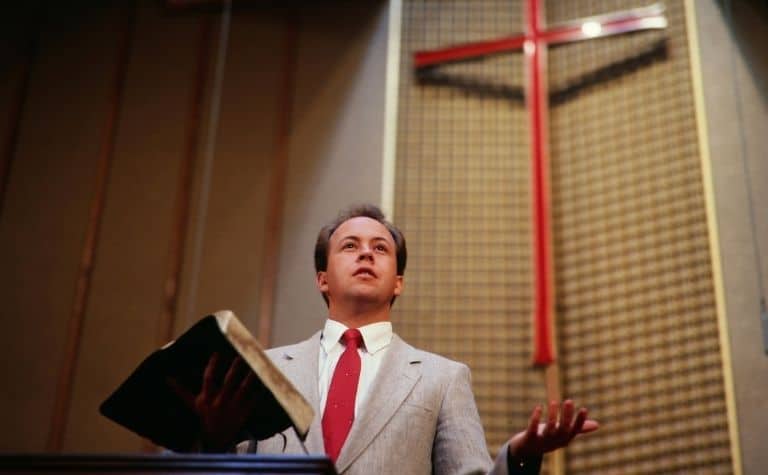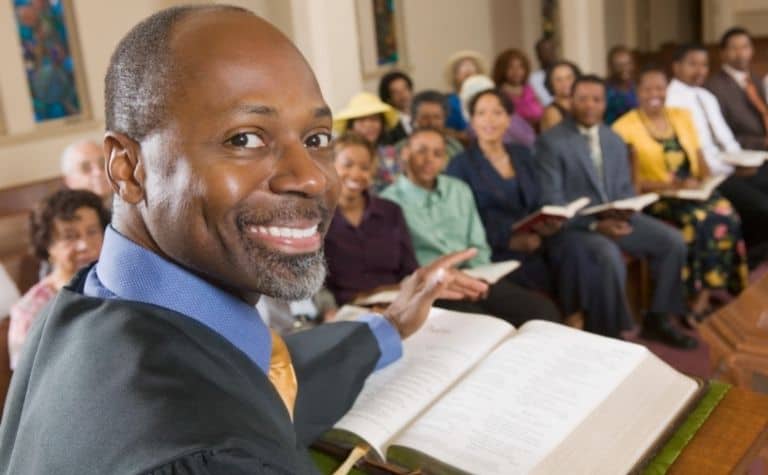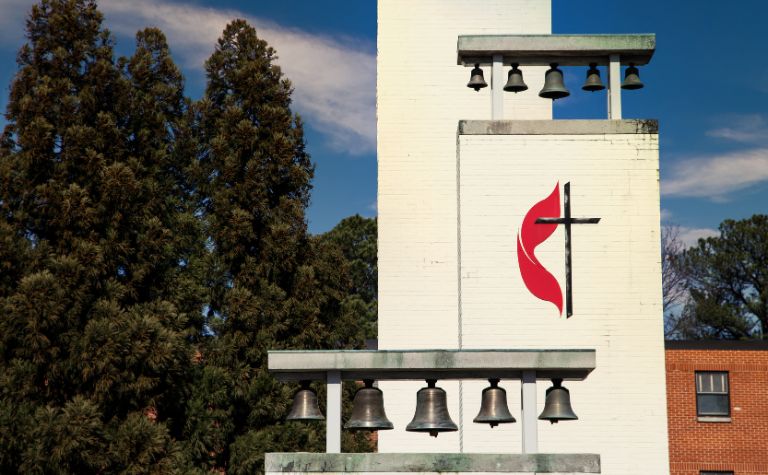The Methodist denomination has many things in common with other Protestant churches. However, one of the unique aspects of the tradition is that many Methodist churches change pastors every few years. Why do they do this?
Methodist churches routinely change pastors because the tradition’s founder, John Wesley, believed it was best that people hear from different preachers. So Methodist bishops, in cooperation with others, assign pastors to churches. Appointments are for one year, but pastors can return to the same church.
What exactly did Wesley say about changing pastors? How do bishops and churches decide when a pastor should stay or leave? Does the pastor have a say? Does the church? Keep reading to learn more.

Why Did John Wesley Support Changing Pastors?
The Methodist tradition of changing pastors is rooted in John Wesley’s preaching ministry. Wesley’s preaching ministry was tremendously successful, so it’s unsurprising that he wanted to duplicate his methods. So what was unique about Wesley’s methods? (Also see Do Methodist Churches Have Female Pastors?)
The itinerant preacher: Wesley was an itinerant preacher, meaning he traveled to different locations to preach the gospel of Jesus Christ. Methodist historians estimate that he preached 40,00 sermons in his life. Wesley believed that there was great effectiveness in people hearing a new voice delivering a timeless message. Conversely, when people hear the same voice over and over again, there is a risk that the message becomes stale. (Also see Methodist vs. Anglican: What’s the Difference?)
Methodist societies: When Wesley traveled from town to town, he would set up “Methodist societies.” Many Methodist churches today can trace their roots to a Methodist society that Wesley started through his itinerant preaching ministry. (Also see Methodist vs. Baptist: What’s the Difference?)
The “iterant pastor”? Wesley not only used the method of iterant preaching to establish Methodist societies, but he also developed an itinerant model of providing pastoral care to congregations.
In a letter to the Reverend Samuel Walker in 1756, Wesley wrote, “We have found by long and consistent experience that a frequent exchange of preachers is best. This preacher has one talent, that another; no one whom I ever yet knew has all the talents which are needful for beginning, continuing, and perfecting the work of grace in a whole congregation.” [1]
The first Methodist itinerant preachers, also called “circuit riders,” often ministered in one geographical region for about three months before being reassigned. As mentioned above, the motivation behind the reappointment was to provide unbelievers and perhaps young Methodist societies with a fresh voice explaining the gospel and how to live it out. (Also see What Do Methodists Believe About Heaven?)
Is there a biblical basis for changing pastors? Teachers in the Methodist tradition often point to passages in the New Testament that describe leaders traveling from region to region to conduct their ministry as an illustration of their methods. People often cite Paul’s missionary journeys as examples (e.g., Acts 13:2-14:7; 15:36-18:22; 18:23-21:19).
While Methodist circuit riders no longer ride horses from town to town, the tradition remains committed to frequently changing church pastors. [2] (Also see Methodist vs. Lutheran: What’s the Difference?)

Who Decides When a Methodist Pastor Gets Moved?
Methodist bishops decide when pastors are reappointed to other churches, though they seek wisdom from the church and the pastor in making their decision.
Bishops also consult with district superintendents and follow the procedures outlined in The Book of Discipline. (Also see Why Do Methodists Say the Apostles Creed?)
While frequent moves can be challenging for a church and a pastor’s family, both parties understand the tradition and see value in it, or they wouldn’t participate in it.
What is the bishop’s priority in making decisions to place pastors? While bishops care about the desires of the church membership and the pastor, what’s best for the church and the wider region is most important.
For example, a bishop may feel it’s best to send a pastor who has had ministry success elsewhere to a struggling congregation, even though that pastor and their church would prefer to remain together.
What does the bishop consider when placing pastors? First, bishops consider what a particular congregation needs with a pastor with those spiritual gifts.
For example, a bishop may believe a church would benefit from a skilled evangelist. The bishop then considers who among the pastors in their jurisdiction has that skill set. (Also see Why Do Methodists Sprinkle in Baptism?)
How long are pastors appointed to a specific church? Bishops often appoint pastors for a year, though they can remove them when they think it best. So a pastor may be reappointed to the same church every year.

How Is A New Methodist Pastor Hired?
Methodist pastors are “called” to ministry but are “sent” to churches. Other Protestant denominations use those terms differently, but the distinction between them in Methodism is essential. (Also see Methodist vs. Pentecostal: What’s the Difference?)
What is the Conference Cabinet? The Conference Cabinet consists of the regional bishop and the superintendents of each district in a region. Every year, the Cabinet discusses which pastors will move churches.
This decision isn’t made independently of churches and pastors. The Cabinet seeks input in the form of job evaluations, conservation with pastors and their families, and of course, a significant amount of prayer. (Also see What Do Methodists Believe About Death?)
Does the Cabinet decide on its own? The Cabinet, the church, and the pastor all have a vote, and most of the time, two out of three determine whether a pastor stays or goes. So, for example, if the pastor and church want to remain together, they can.
Or if a church and the Cabinet think a pastor should leave, the pastor may be moved, even if they don’t want to be. A bishop, however, can make an executive decision based on the region’s needs. (Also see Do Methodists Wear Crosses?)
The chain reaction: Often, when one Methodist pastor leaves, there is a ripple effect in the churches in the region. A pastor from another church fills the newly vacated position, and then that person’s position is filled by a pastor from another church, and so on.
References:
[1] Source
[2] Source
[3] Source
Related Questions
Methodism and Anglicanism are distinct branches of Christianity, though they have a closer relationship to each other than to other denominations and traditions. Because of their unique connection,...
The Methodist Church and the Roman Catholic Church both value doctrine and practice. Both traditions also believe they faithfully follow the teachings of Jesus of Nazareth, and they agree on...
